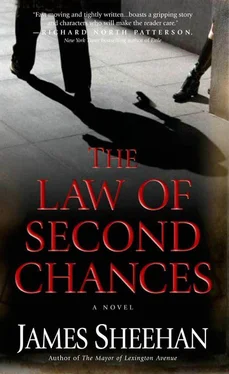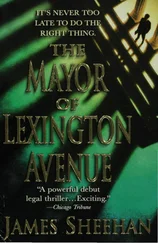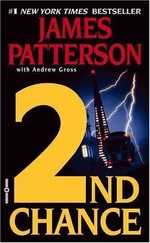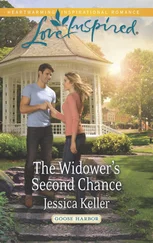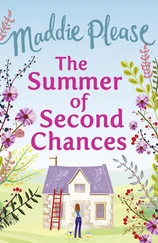James Sheehan - The Law of Second Chances
Здесь есть возможность читать онлайн «James Sheehan - The Law of Second Chances» весь текст электронной книги совершенно бесплатно (целиком полную версию без сокращений). В некоторых случаях можно слушать аудио, скачать через торрент в формате fb2 и присутствует краткое содержание. Год выпуска: 2013, ISBN: 2013, Издательство: James Sheehan, Жанр: Триллер, на английском языке. Описание произведения, (предисловие) а так же отзывы посетителей доступны на портале библиотеки ЛибКат.
- Название:The Law of Second Chances
- Автор:
- Издательство:James Sheehan
- Жанр:
- Год:2013
- ISBN:9781630011659
- Рейтинг книги:3 / 5. Голосов: 1
-
Избранное:Добавить в избранное
- Отзывы:
-
Ваша оценка:
- 60
- 1
- 2
- 3
- 4
- 5
The Law of Second Chances: краткое содержание, описание и аннотация
Предлагаем к чтению аннотацию, описание, краткое содержание или предисловие (зависит от того, что написал сам автор книги «The Law of Second Chances»). Если вы не нашли необходимую информацию о книге — напишите в комментариях, мы постараемся отыскать её.
The Law of Second Chances — читать онлайн бесплатно полную книгу (весь текст) целиком
Ниже представлен текст книги, разбитый по страницам. Система сохранения места последней прочитанной страницы, позволяет с удобством читать онлайн бесплатно книгу «The Law of Second Chances», без необходимости каждый раз заново искать на чём Вы остановились. Поставьте закладку, и сможете в любой момент перейти на страницу, на которой закончили чтение.
Интервал:
Закладка:
“Yes.”
“What happened?”
“He took the Fifth and refused to testify.”
Jack picked up the transcript of James Vernon’s unsworn interview with Wofford Benton, which had been marked as defendant’s exhibit number 8 but not stipulated into evidence.
“Mr. Benton, I’m handing you defendant’s exhibit number 8 and ask you if you can identify that document.”
“Yes. It is a transcription of a recorded interview I had with James Vernon on April 13, 1980, about a month before Henry Wilson’s trial began.”
“Did you ever tell any of the appellate attorneys representing Mr. Wilson in his two previous appeals about the existence of this transcript?”
“No, I did not.”
“Why not?”
“Nobody asked me. It wasn’t really significant to me, and I actually forgot I had it.”
“Since that time, have you changed your opinion on the significance of this transcript?”
“Yes.”
“And why have you done so?”
“To be perfectly honest, I don’t think that I ever read it before you found it in my barn a few weeks ago. In the transcript, James Vernon not only said he was at the murder scene and that Henry Wilson wasn’t there, but he also said that he told the same story to his lawyer, Ted Griffin.”
“Why was that significant?”
“Well, if I had anticipated James Vernon changing his mind about testifying, I could have talked to Ted Griffin and had him available to testify.”
Jack introduced the transcript into evidence over the objection of Scott Tremaine, who argued that it was hearsay and that it was irrelevant. The judge let it in.
“In your opinion,” Jack continued, “would Ted Griffin’s testimony have made a difference in the outcome of the trial?”
Scott Tremaine was on his feet. “Objection, your honor. This is opinion testimony on one of the ultimate issues you will have to decide.”
“Overruled.” The judge obviously wanted to hear what Wofford had to say.
“Absolutely, it would have made a huge difference,” Wofford responded. “James Vernon took the Fifth. If I could put a lawyer on, rather than the prison snitch, and have him testify as to what James Vernon told him about this murder, we would have had a much stronger case.”
“You didn’t do that, though-have Ted Griffin waiting in the wings in case James Vernon took the Fifth?”
“That’s correct.”
“When did you realize that you’d made a mistake in not having Ted Griffin waiting in the wings?”
“Just a few weeks ago, when I read the transcript again for the first time. For some reason, even at trial I did not remember that James Vernon told me he had talked to Ted Griffin. It was a huge mistake.”
“Do you know who Anthony Webster is?”
“Yes. Anthony Webster was the investigator for the state in this case.”
“Did you know that Anthony Webster also spoke with James Vernon?”
“I know now because you told me that a few weeks ago as well.”
“The first time you knew that Anthony Webster, the prosecutor’s investigator, had spoken to James Vernon was less than a month ago?”
“That’s right. You told me that you obtained that information from Ted Griffin.”
Jack stole a glance at the judge. She was writing copious notes.
“If you had known that Anthony Webster talked to James Vernon at the time of the original trial would you have called Webster as a witness?”
“Absolutely.”
“Would that have made a difference in the outcome of the case, in your opinion?”
Scott Tremaine was on his feet again. “Objection, your honor. Mr. Tobin is trying to have Judge Benton decide this case rather than you.” Jack could tell that Scott was attempting to play to the judge’s vanity, but she was obviously having none of it.
“What’s your legal objection, Counsel?”
“It calls for an opinion on one of the ultimate issues before this court.”
“Overruled. The witness may answer the question.”
“Yes,” Wofford answered, “it would have made a great difference to the outcome of the case. I would have been able to put the state’s investigator on the stand after the state’s case was over and have him admit that there was a witness out there who said Henry Wilson didn’t commit the murder. That testimony would have made the prosecution look like it was hiding something, and I would not have had to use the prison snitch. I don’t think Henry would have been convicted under those circumstances.”
Wofford’s testimony was going well. Jack switched gears to cover the final subject matter of his direct examination.
“Was there any physical evidence to link Henry Wilson to this murder?”
“No.”
“What evidence was there?”
“There was the testimony of David Hawke that he drove Henry Wilson and Hawke’s cousin, Delbert Falcon, to Clarence Waterman’s hairdressing salon; that he waited while they went inside to steal his money and his dope; and that they killed him when they were in there. Henry Wilson didn’t have an alibi. I believe that the jury considered David Hawke’s testimony and asked themselves the following question: why would a man tell a lie to voluntarily incriminate himself and his cousin? When they couldn’t come up with a viable answer, they concluded that David Hawke was telling the truth and that Henry Wilson was guilty.”
“Did you know at the time of trial that David Hawke was not going to be prosecuted for his role in this crime?”
“No. As a matter of fact, I asked him-and that is on page 197 of the transcript, exhibit number 1, your honor-if he was promised anything for his testimony, and he said no. I didn’t find out until you told me that neither he nor his cousin was prosecuted for this crime.”
“If you had known that at the time of the trial, would that have made a difference?”
Scott Tremaine felt obligated to make his objection even though by this time he knew it would do no good with this judge. He had to preserve the point for appellate purposes. “Objection,” he said matter-of-factly.
“Overruled.”
“It absolutely would have made a difference,” Wofford replied. “The jury might have questioned the entire case if they’d known the other two men involved were walking.”
“No more questions,” Jack said and sat down next to Henry.
“Great job,” Henry whispered in his ear.
“Don’t evaluate the testimony until cross-examination is over,” Jack told him. Henry may have had experience reading legal briefs and cases for years, but he didn’t know what could happen to a seemingly good witness on cross-examination.
Scott Tremaine walked to the podium.
“Judge Benton, do you believe that your failure to anticipate that James Vernon would take the Fifth and to have Ted Griffin waiting in the wings to testify was incompetence and was one of the reasons Mr. Wilson was convicted of murder seventeen years ago?”
Wofford swallowed hard before answering. It wasn’t easy for a sitting judge to admit incompetence on the record. “Yes, I do,” he said.
“It’s my understanding that you have been a circuit judge for about ten years, is that correct?”
“Yes.”
“And I assume that during that time you have had to sit and decide cases just like this one, is that correct?”
“Yes.”
“Many, many times?”
“Yes.”
“And you have had to decide this very issue-incompetence of counsel-haven’t you?”
“Yes.”
“So you are thoroughly familiar with the case law?”
“Yes.”
“Let me ask you this question, then. Even though you feel your mistake in Henry Wilson’s case constituted incompetence, does it satisfy the legal standard for incompetence?”
It was Jack’s turn to jump to his feet. “Your honor, he’s asking the witness to make a legal evaluation of his own behavior.”
Читать дальшеИнтервал:
Закладка:
Похожие книги на «The Law of Second Chances»
Представляем Вашему вниманию похожие книги на «The Law of Second Chances» списком для выбора. Мы отобрали схожую по названию и смыслу литературу в надежде предоставить читателям больше вариантов отыскать новые, интересные, ещё непрочитанные произведения.
Обсуждение, отзывы о книге «The Law of Second Chances» и просто собственные мнения читателей. Оставьте ваши комментарии, напишите, что Вы думаете о произведении, его смысле или главных героях. Укажите что конкретно понравилось, а что нет, и почему Вы так считаете.
